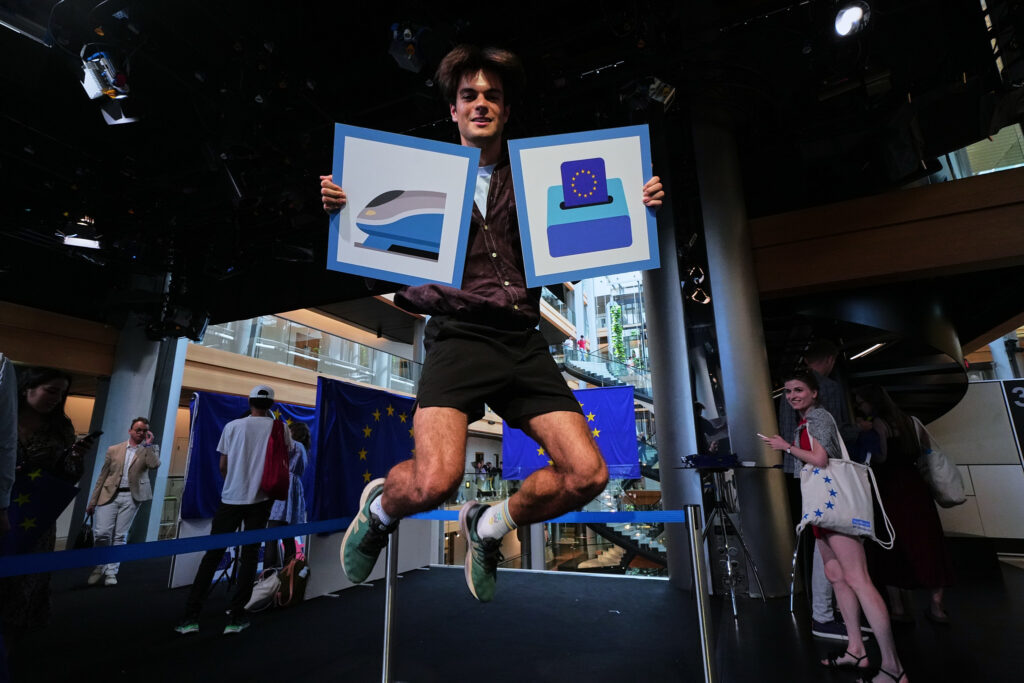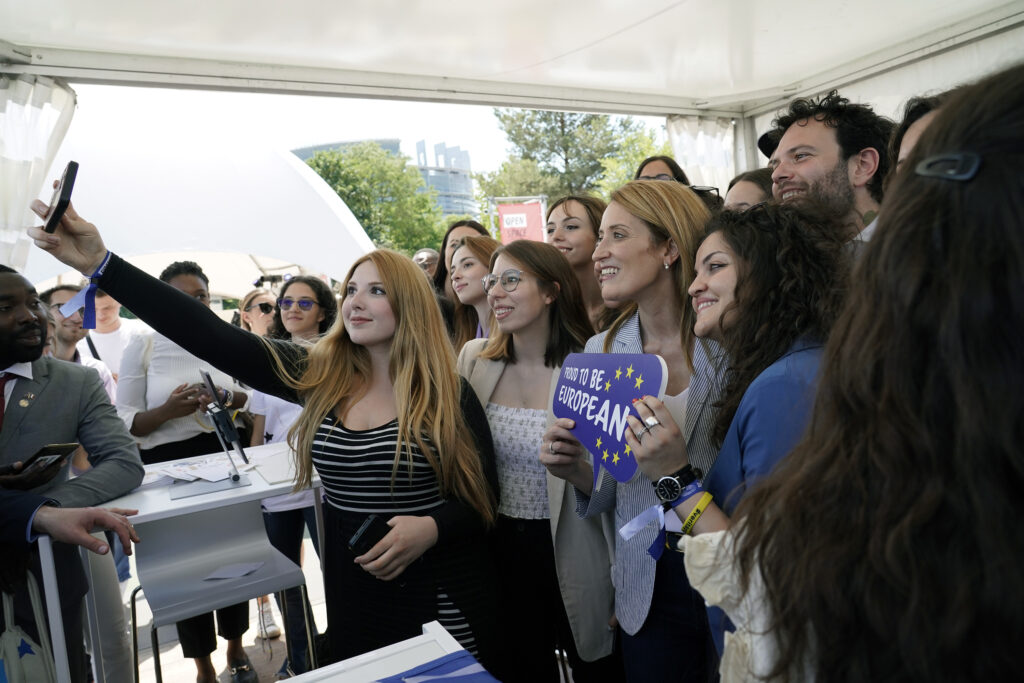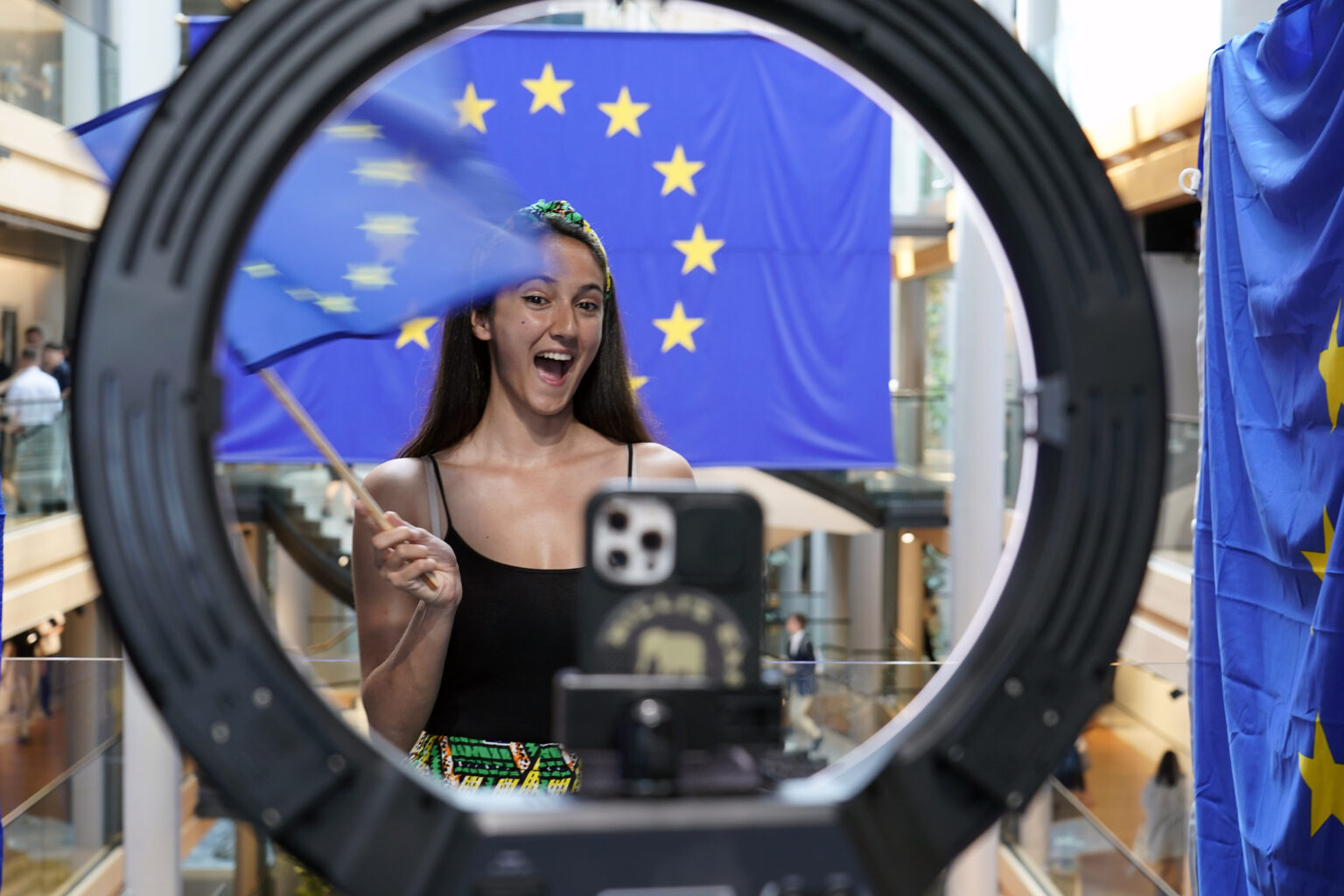The European Union is stepping up its efforts to engage young people in democratic life with its EU Youth Strategy (2019-2027), focusing on engagement, connection and empowerment. The initiative covers objectives such as gender equality, mental health and climate action, with the aim of achieving an inclusive and environmentally responsible future.
Since 2002, the European Union has been developing a dedicated youth policy, with the aim of stimulating the participation of young people in the democratic life of Europe and offering equal opportunities to this age group.
This policy is firmly anchored in the Treaty on the Functioning of the European Union (TFEU), which provides for the promotion of youth exchanges and the promotion of young people’s participation in the democratic life of Europe.
The current framework for EU youth policy is the EU Youth Strategy (2019-2027). This strategy seeks not only to promote young people’s participation, but also to support their social and civic engagement, ensuring that all young people have the resources they need to participate fully in society.
Furthermore, the strategy focuses on three key areas of action: engaging, connecting and empowering. It strives to address cross-cutting issues that affect young people’s lives and the challenges they face.

Another key point is to understand that this strategy is firmly based on international human rights principles. It emphasises a number of guiding principles that should be applied in all youth-related policies and activities. These principles include:
A. Equality and non-discrimination: The strategy emphasizes combating all forms of discrimination and promoting gender equality, recognizing that young people may face multiple forms of discrimination.
B. Inclusion: Recognising the diversity among young people, the strategy promotes inclusive policies and activities, especially for those with fewer opportunities or whose voices may be neglected.
C. Participation: The strategy upholds the right of young people to participate in the development, implementation and evaluation of policies that affect them through meaningful participation.
D. Global, European, national, regional and local dimension: It recognises the importance of addressing youth issues at different levels and involving young people in solving global problems.
E. A dual approach: The strategy adopts a dual approach, combining initiatives in the youth sector and the mainstreaming of youth-relevant issues in different policy areas.
These principles ensure that approaches are fair, inclusive, participatory and inclusive, fostering an environment in which all young people can thrive and contribute to society in a meaningful way.
European Youth Goals

In addition to the principles guiding the actions, there are also the European Youth Goals, which emerged as a result of the sixth cycle of the Structured Dialogue, held under the title ‘Youth in Europe: what next? The aim of this cycle was to give young people a voice and to jointly contribute to the creation of the EU Youth Strategy 2019-2027.
These objectives represent a vision of a Europe that empowers young people to realise their full potential, identifying cross-cutting areas that affect young people’s lives and pointing out the challenges that need to be addressed. That is why it is important to know each of them:
1. Connecting the EU with young people
An increasing percentage of young people have lost confidence in the EU, as they find it difficult to understand its principles, values and functioning. Democratic deficits in EU processes also contribute to increasing scepticism among young people. The aim is therefore to foster young people’s sense of belonging to the European project by building a bridge between the EU and young people in order to rebuild trust and increase participation.
2. Equality for all genders
Gender discrimination continues to affect many young people, especially young women. It is essential to ensure equal opportunities and access to rights for young people of all genders, including non-binary and LGBTQIA+ people.
Therefore, the aim here is to ensure equality of all genders and gender-sensitive approaches in all areas of young people’s lives.
3. Inclusive societies
European Union data show that one third of young Europeans are at risk of poverty and social exclusion. Many face multiple forms of discrimination and prejudice, including hate crimes.
The aim is therefore to enable and ensure the inclusion of all young people in society.
4. Information and constructive dialogue
Young people find it difficult to verify the accuracy and reliability of information. They need to be better equipped to navigate the media landscape and to engage in constructive dialogue.
The aim here is to ensure that young people have better access to reliable information, to support their ability to critically evaluate information and to engage in participatory and constructive dialogues.
5. Mental health and well-being
A significant number of young people in Europe express concern about the prevalence of mental health problems among their peers. Social and societal pressures contribute to these concerns.
Therefore, the aim is to achieve better mental wellbeing and eliminate stigma in relation to mental health problems, promoting the social inclusion of all young people.
6. Moving forward with rural youth
Despite the EU’s commitment to rural development, differences persist between living in urban and rural areas. This objective therefore aims to create the conditions to enable young people to develop their full potential in rural areas.
7. Quality employment for all
Young people suffer from high levels of unemployment, precarious working conditions and discrimination in the labour market. Therefore, the objective is to ensure an accessible labour market, with opportunities leading to quality jobs for all young people.
8. Quality learning
Education remains fundamental for active citizenship, an inclusive society and employability. Therefore, integrating and improving different forms of learning to prepare young people for the challenges of a constantly changing life in the 21st century is an objective for the EU.
9. Space and participation for all
Young people are under-represented in decision-making processes that affect them. Strengthening the democratic participation of young people and providing dedicated spaces for them in all areas of society is the aim of this objective.
10. A sustainable and green Europe
Society needs to act against climate change and growing environmental threats. The aim here is to achieve a society in which all young people are environmentally active, educated and able to make a difference in their daily lives.
11. Youth organisations and European programmes
European youth organisations and programmes involve millions of young people, but often lack funding and recognition.
The ultimate goal is therefore to ensure equal access for all young people to European youth organisations and programmes, building a society based on European values and identity.
It is important to note that the objectives for European Youth are the result of a dialogue with young people and reflect a holistic and comprehensive vision, which aims to connect young people to the European project, promote gender equality, create inclusive societies, provide reliable information, improve mental health and well-being, support rural youth, ensure quality jobs, improve education, foster democratic participation, promote environmental responsibility and strengthen European youth organisations and programmes.
In essence, the EU Youth Strategy is not just an action plan, but a statement of values and a promise of a more inclusive, egalitarian and environmentally responsible future for all young people in Europe. By addressing cross-cutting issues and promoting the meaningful participation of young people in all spheres of life, the strategy aims not only to address the immediate needs of young people, but also to empower the next generation of leaders, innovators and active citizens. This reflects an enduring EU commitment to the well-being and success of young people, which is crucial for Europe’s prosperous and environmentally responsible future.


